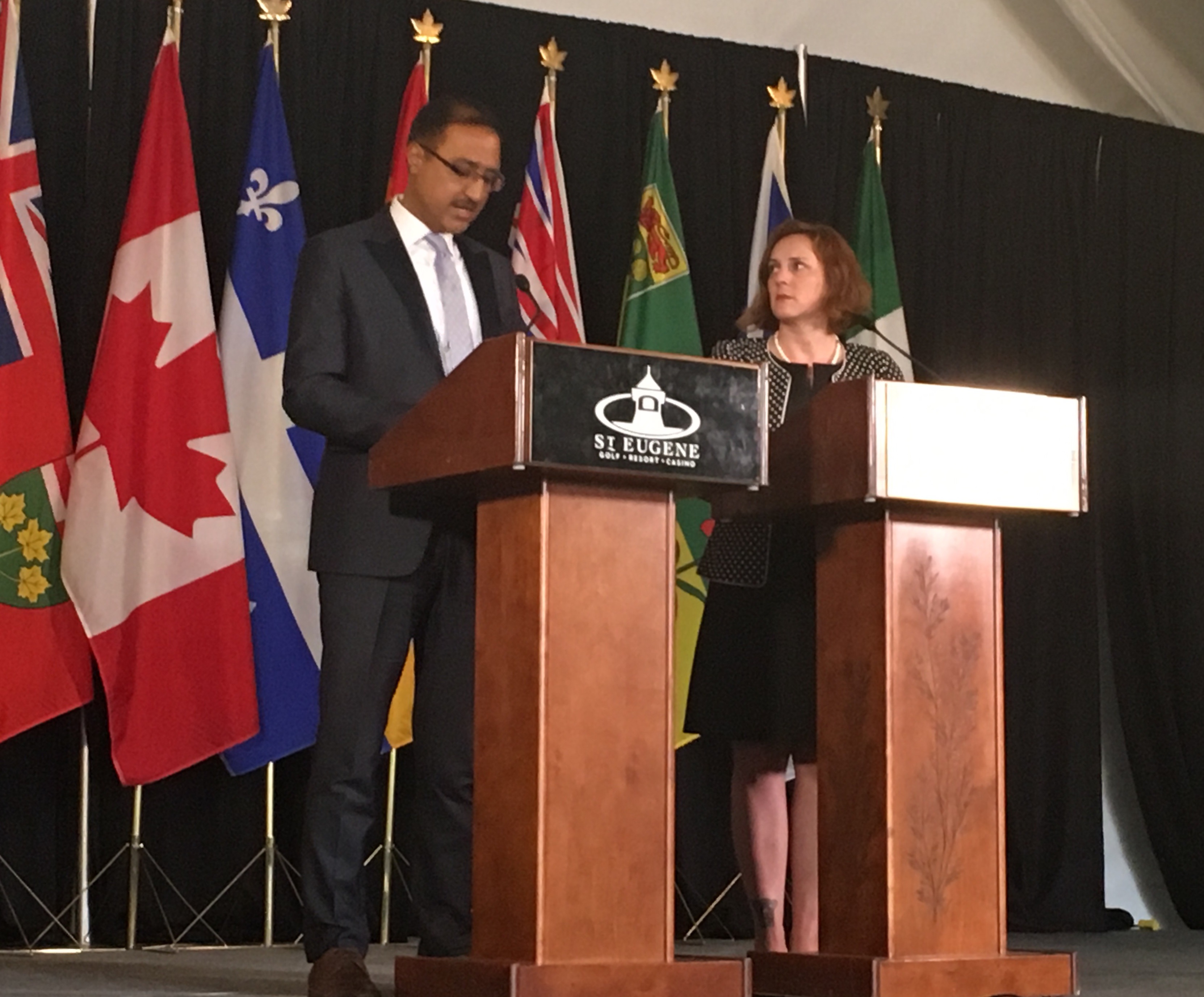The 2019 Energy and Mines Ministers’ Conference in Cranbrook revolved around innovation and sustainability in Canada’s natural resource sectors, as they look to keep Canada relevant and competitive in global markets.
Amarjeet Sohi, the Federal Minister of Natural Resources said Canada has an incredible opportunity to be competitive.
“Our new major projects inventory includes 454 projects with a combined value of $635 billion under construction or planned over the next 10 years,” said Sohi. “Canada is a place where companies want to invest and we will continue to do more to ensure Canada is the destination of choice in the world that is looking for the most sustainably sourced products.”
Specifically, Sohi said Canada is positioned to be a mining powerhouse through Canadian Minerals and Metals Plan (CMMP), which was discussed at the Energy and Mines Ministers’ Conference to include six action steps. Including a pan-Canadian geoscience strategy, an improved reclamation and remediation initiative, programming to support an effective innovation ecosystem, a mineral literacy campaign, and establishing a Canada Brand for mining, the first in a series of Action Plans on the CMMP is expected in early 2020.
Michelle Mungall, B.C. Minister of Energy, Mines, and Petroleum Resources said CMMP is aligned with their Mining Jobs Task Force in British Columbia, creating parallels in ideology and practice.
“The issues that we’re experiencing in B.C. are issues that are felt right across the country and those issues kind of revolve around what we need to do to make sure that our mining sector’s competitive on a global scale and that involves making sure that it’s also environmentally sustainable.”
Questioned about mining’s environmental sustainability with the consistent concerns of selenium in the Elk Valley’s waters that flow down to the United States, Mungall said she consistently meets with Teck and discusses the issue.
U.S. Governors have been calling for action, while Teck attempts to tackle the problem through the Elk Valley Water Quality Plan which was established in 2014 after approval by the B.C. Government.
“Teck is committed to meeting the objectives of the Elk Valley Water Quality Plan and has made significant progress in developing measures to protect water quality in the Elk Valley,” reads Teck’s website. “We have commissioned our first active water treatment facility at our Line Creek Operations, and started construction of a second facility at our Fording River Operations. We have also commissioned the first Saturated Rock Fill facility at Elkview Operations, a new form of water treatment pioneered by Teck.”
“What we want to see from them is a continued effort to make this a priority,” said Mungall. “They’re regularly updating me personally but they’re regularly working hand-in-hand with ministry staff to solve this problem. It is a problem, it does need to have a solution and the sooner we can have a solution, the better.”
Another topic of discussion at the Energy and Mines Ministers’ Conference, hosted at St. Eugene Resort on the Ktunaxa Nation, was the continued commitment to Indigenous partnerships and the innovation of battery power.
Minister Sohi issued a $4.5 million Impact Canada Challenge aimed at accelerating made-in-Canada battery innovation.
“There is a $23 billion battery industry and it’s expected to grow to more than $90 billion over the next decade, providing a major economic opportunity for Canada.”
“Canada is in a very good position to help as we transition to a new, clean, and green economy,” added Sohi. “14 of the minerals that are required to built batteries, to build solar panels, to build wind turbines, are available right here in Canada and we need to harness that product, and we need to harness that in a sustainable way, and we need to harness that sustainable participation and partnership with Indigenous communities.”
More: Impact Canada “Charging the Future” Challenge




